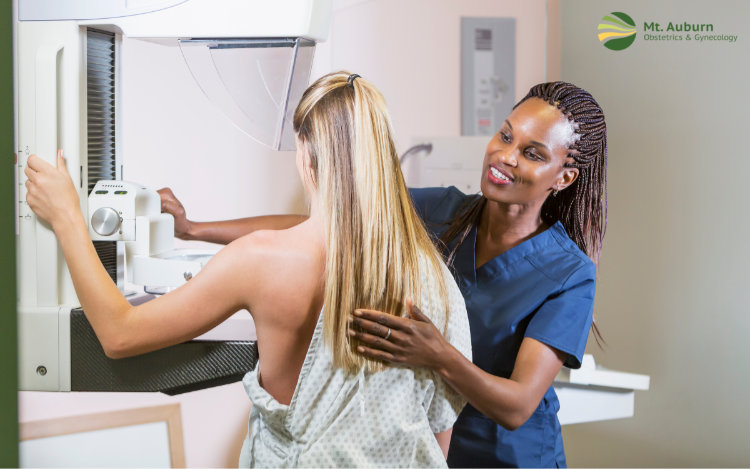What do gynecologic and obstetric care for breast cancer survivors look like?
Of the 5.8 million female cancer survivors in the United States, 40% of them are breast cancer survivors. With over 2 million breast cancer survivors in the US and 200,000 more breast cancer diagnoses each year, standard OBGYN care practices for breast cancer survivors must be shared so that these individuals can access the best care possible.
Breast cancer survivors may continue to receive specialized oncological care for up to two years after successful breast cancer treatment. After that, they will transition to a primary care provider or non-specialized OBGYN.
Understanding what that care looks like ensures proper health care for breast cancer survivors, and it can help them prepare by setting expectations and norms.
So, here’s what you can expect when receiving routine gynecological and obstetric care as a bread cancer survivor.
1. You may receive help managing any side effects of hormone blockers.
Your doctor may prescribe estrogen blockers to prevent the spread or potential spread of cancer cells that latch onto estrogen and progesterone receptors. If you are suppressing your hormones, you may experience the following:
- vaginal dryness
- thinning vaginal tissue
- loss of elasticity in the vaginal walls
- hot flashes
- night sweats
- loss of libido
- painful sex
For many women, these symptoms are extremely personal, but your gynecologist is an expert, and they are here to help you navigate any unwanted side effects.
2. You can talk about your sex life.
Although issues in the bedroom may seem like something you should only discuss with your partner, addressing any health issues related to sex can help you relieve stress and regain control of your life.
There are tools and resources to help breast cancer survivors to enjoy sex after treatment, and some of these options include the following:
- non-hormonal lubricants
- dilators
- pelvic therapy
3. Your OBGYN can help you with “surveillance.”
“Surveillance” refers to the process of looking out for potential symptoms of cancer. While most breast cancer survivors will not get cancer again, they do experience a higher risk for certain types of cancer, including a second type of breast cancer.
Your OBGYN will look out for signs of cancer at your regular gynecological appointments and run tests, such as a routine PAP smear.
4. Your OBGYN may talk to you about wellness to support your health.
Your overall health is a significant indicator of cancer recurrence, and a healthy lifestyle can also ease the discomfort of some lingering side effects from breast cancer treatments.
You can always talk to your OBGYN or primary care physician about any changes you’d like to make regarding your wellness, such as:
- stress management
- getting quality sleep
- healthy and balanced eating
- physical activity
- mental health
- drug or alcohol use
5. Your OBGYN can answer fertility and breastfeeding questions.
If you want to have a child after undergoing breast cancer treatment, you should talk to your OBGYN before trying to conceive.
It is possible for breast cancer survivors to have successful pregnancies; however, some breast cancer treatments may affect your fertility, which is your ability to conceive and carry a baby to term.
For certain cancers that rely on estrogen, pregnancy could increase your risk of cancer. Your OBGYN can explain any risks associated with pregnancy to you.
If you received chemotherapy, it’s best to wait at least one year before attempting to conceive a child. However, there has been no research that links a history of breast cancer in parents to any long-term health concerns in their children.
Your OBGYN can also explain what steps you can take if breastfeeding is not an option for you.
Breast cancer survivors require quality gynecological and obstetrics care
Although gynecologic and obstetric care for breast cancer survivors is, in many ways, the same as care for those who have not undergone breast cancer treatments, breast cancer survivors have unique concerns and care needs.
Breast cancer treatments affect more than just breast tissue: they have physical, mental, sexual, and reproductive impacts that survivors should address with their OBGYNs.
Whether you’re a breast cancer survivor or not, it is important that you find an OBGYN who you trust and feel comfortable with. Your OBGYN should take care to listen to and address any concerns you have, and if they cannot assist you, they should be able to direct you to a healthcare provider who can.
